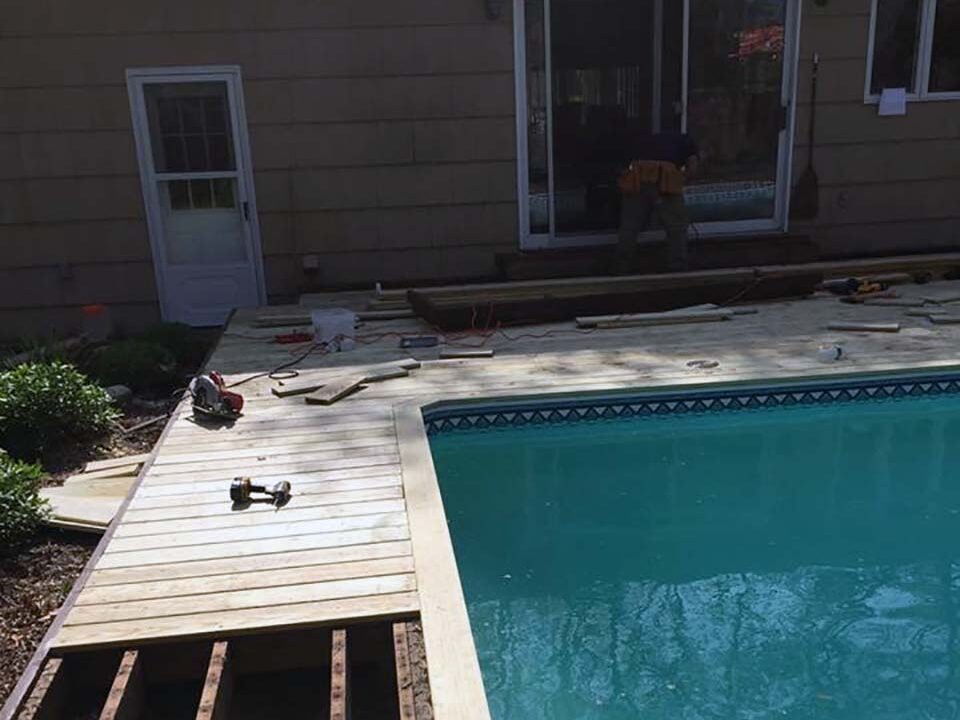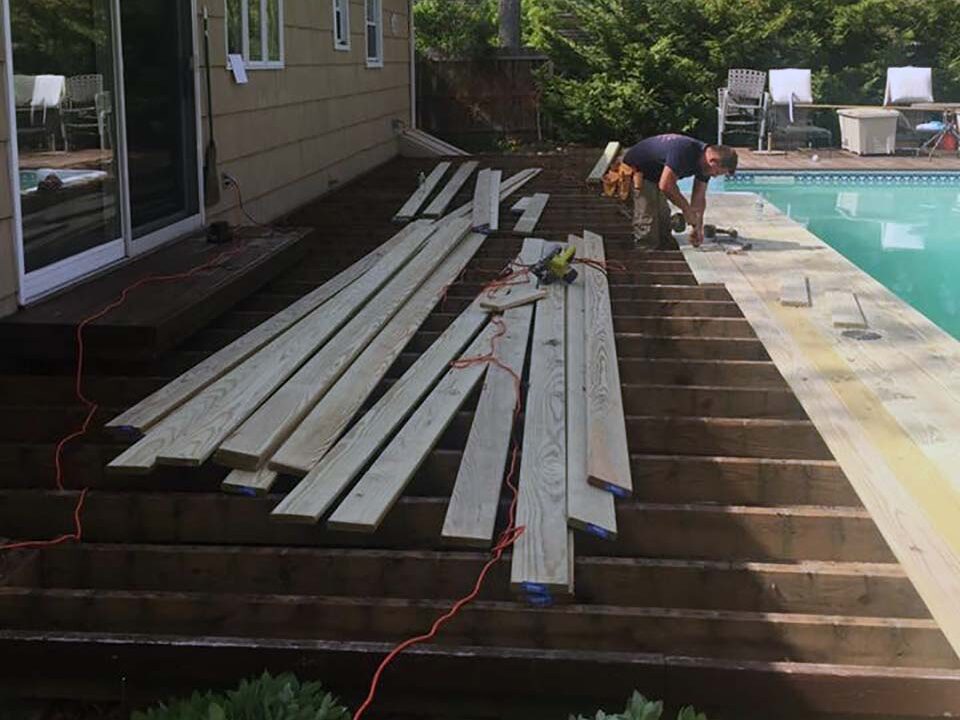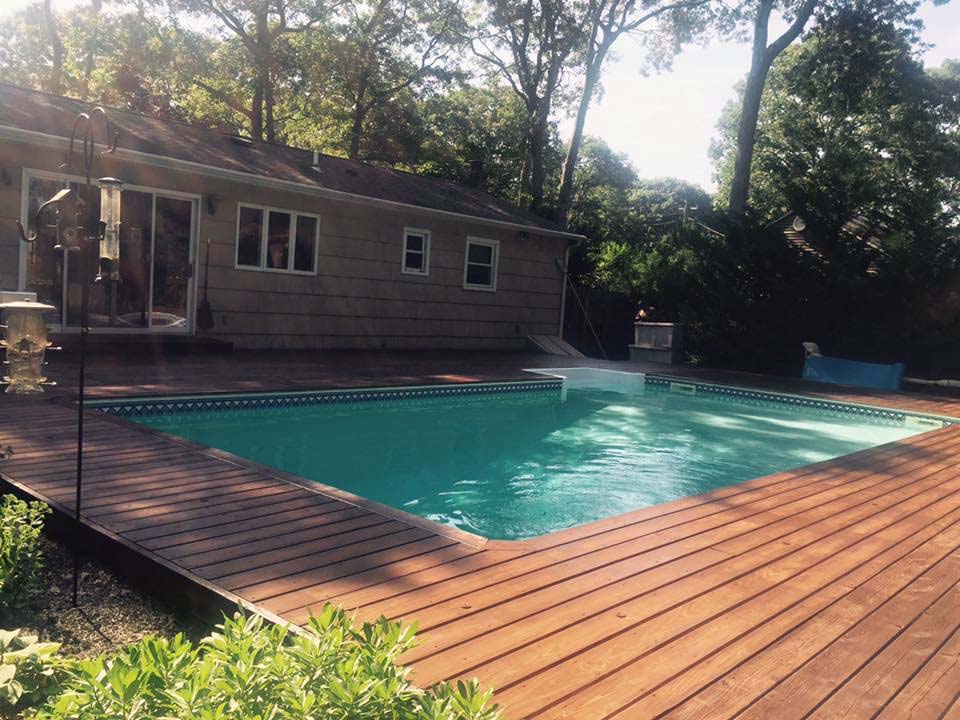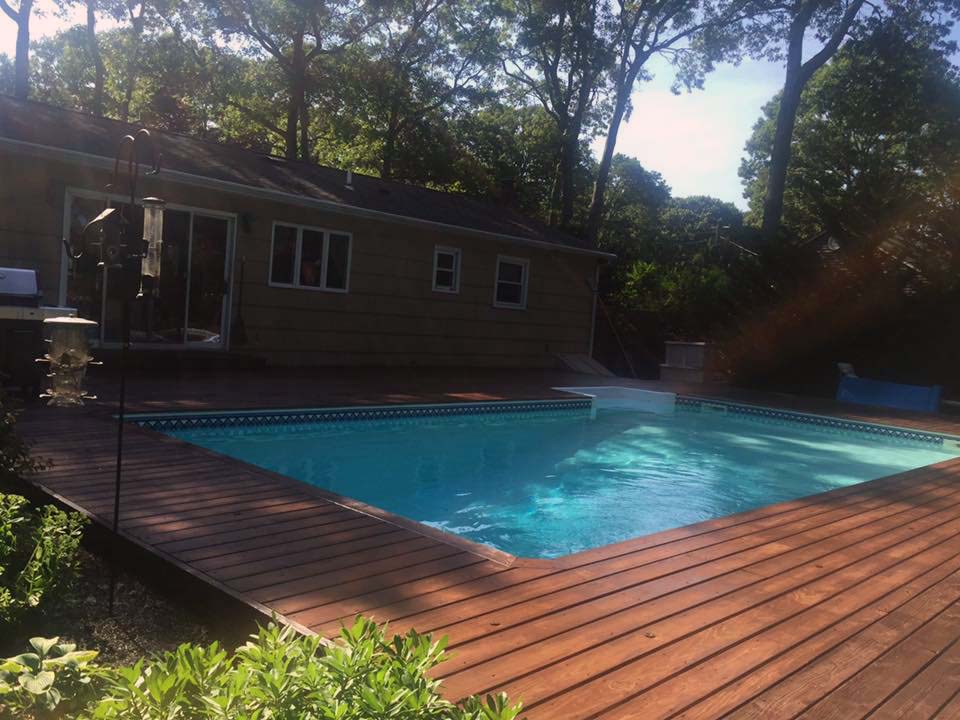Your backyard deck is undoubtedly an indispensable feature of your Yaphank, Long Island home.
That is the main reason why you need to seek help from a reputable deck builder – like Expressway Decks – to inspect and evaluate the deck or railing damage. Also, you must ascertain the time it takes to complete the deck restoration or repair project.
Seasonality affects the deck construction and deck repair or restoration process. Some projects may prolong due to weather disturbances and constraint. Our deck contractors would be able to discuss these in detailed once you move into construction. You don’t have to worry. Once your deck is properly maintained and well-restored by your contractor, you can expect an outdoor space that will last for years.
In any case, we will provide a price quote that is the right-fit for your needs and budget. When you’re ready for a deck repair, simply fill out our ‘estimate’ form below or just call us at 631.772.7596 and we’ll design a materials list and quote for you.
Captain Robert Robinson came to Yaphank and built his Dutch Colonial house with the building dated at 1726. He was then granted permission to dam the Carman’s River to build a mill across the street from his house. The construction of this mill in 1739 was considered the founding date of the Hamlet of Yaphank.
In the mid 18th century, a man named John Homan built two mills along the Carman’s River, which runs directly through the center of the town. These two mills inspired the first name for the town: Millville. The translator/author Mary Louise Booth was born in Millville in 1831. In 1846 a post office was opened in the town, but because there were thirteen other towns named “Millville” in New York state at the time, the town was renamed “Yaphank”, from the local Native American word Yamphanke, meaning “bank of a river”.
In 1843 the Long Island Rail Road built a railroad station in Yaphank (still named Millville at the time), and virtually overnight the small mill town became a major commercial center. By 1875, Yaphank had two grist mills, two lumber mills, two blacksmith shops, a printing office, an upholstery shop, a stagecoach line, two physicians, a shoe shop, two wheelwright shops, a meat market, a dressmaker and a general store.
Today, Yaphank is home to about half of those industries. The grist mills, blacksmith, physician, shoe shop, wheelwright shops, meat markets and the dressmakers are long gone, although the rail road station is still there, along with the general stores.
Today, Yaphank holds three delis, one pizza shop, a shooting supply company, a skeet range, a bank, and a house moving company.
Yaphank was the home of Camp Upton, which was used as a boot camp in 1917. In 1947, the U.S. Department of War transferred the Camp Upton site to the Atomic Energy Commission, and it now serves as the home of Brookhaven National Laboratory. Before the end of World War I, more than 30,000 men received their basic training there, including songwriter Irving Berlin. It was there that Berlin composed the musical comedy revue Yip Yip Yaphank, which had a brief run on Broadway, and wrote the patriotic tune “God Bless America”.
A number of Suffolk County facilities are located in Yaphank, including Suffolk County Police Department headquarters, the county fire academy, and the Suffolk County Farm and Education Center, which offers a glimpse into the workings of an authentic 100+ year old farm and educational programs by Cornell Cooperative Extension.
A quarter horse racing facility named Parr Meadows operated in Yaphank in 1977. The racetrack reopened in 1986 for a single meet, then called Suffolk Meadows. In 1979, Parr Meadows served as the venue of a tenth anniversary reunion concert that featured many of the original performers from the Woodstock Festival.









